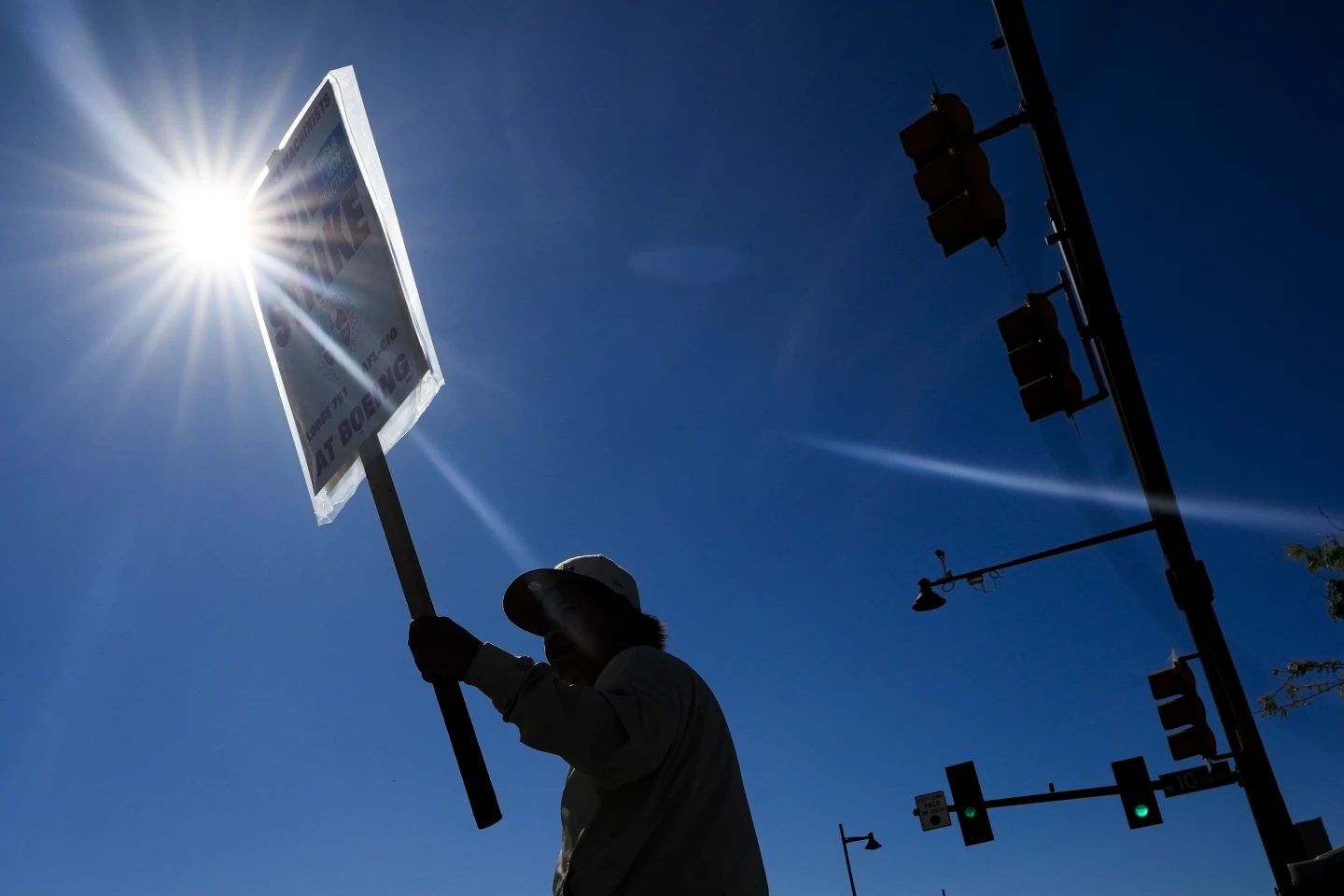Boeing’s striking factory workers in the Pacific Northwest are set to resume negotiations with the company on Friday, as announced by the union representing them.
The District 751 of the International Association of Machinists and Aerospace Workers revealed that the discussions would take place with the assistance of federal mediators. The last formal negotiations occurred over a week ago and ended without resolution after two days of mediation.
The union expressed its readiness to address critical issues identified by its members, emphasizing that the only way to resolve the ongoing strike is through negotiation. Boeing confirmed the upcoming talks, marking a positive step after the company faced backlash from union leaders earlier this week. The company had announced a revised contract to its approximately 33,000 striking workers through the media and set a Friday night deadline for ratification, which angered union representatives.
Boeing’s latest proposal included a pay raise of 30% over four years, an increase from a previous offer of 25%, which union members overwhelmingly rejected when they voted to strike two weeks ago. The union initially sought a 40% raise over three years. Boeing stated that this offer would elevate the average annual salary for machinists from $75,608 to $111,155 by the end of the contract, while also maintaining annual bonuses based on productivity. In the earlier rejected contract, Boeing had proposed replacing bonuses with contributions to retirement accounts.
In response to union opposition, Boeing extended the negotiation window, allowing more time for consideration of the revised proposal. However, many workers voiced concerns that the offer does not adequately address the rising cost of living in the Puget Sound area since the last negotiations, which took place 16 years ago.
The ongoing strike has led to significant production halts, affecting Boeing’s 737, 767, and 777 aircraft lines. In an effort to mitigate financial losses, the company has implemented cost-cutting measures, including temporary furloughs for thousands of nonunion managers and employees. As the strike enters its second week, the financial strain is becoming evident among union workers.
While some employees, like 22-year-old Mimi Collins, have found alternative work that pays better than their Boeing positions, others are facing financial uncertainty. Collins, a wire assembler at Boeing, supplemented her income by driving for DoorDash and donating plasma. Despite this, she expressed dissatisfaction with her pay, noting the lack of free time and the stress of managing living expenses on her Boeing salary.
Bianca Stafford, another employee, indicated that she had prepared for a potential strike by saving money. With living expenses totaling around $3,000 monthly, Stafford feels secure for now, but acknowledges the challenges posed by inflation.
Conversely, Emma Vu, a newer employee, is feeling the pressure of financial uncertainty. Although she knew to expect a strike, she struggles to save due to high living costs. She is now relying on a limited cushion and is concerned about resorting to credit cards.
The strike reflects broader concerns about pay and working conditions at Boeing, as workers like Javier Guzman express hopes for a better contract while grappling with immediate financial pressures. As negotiations loom, many workers share a common desire to return to their jobs under improved circumstances.
The Associated Press and the Seattle Times contributed to this report.










The latest news in your social feeds
Subscribe to our social media platforms to stay tuned